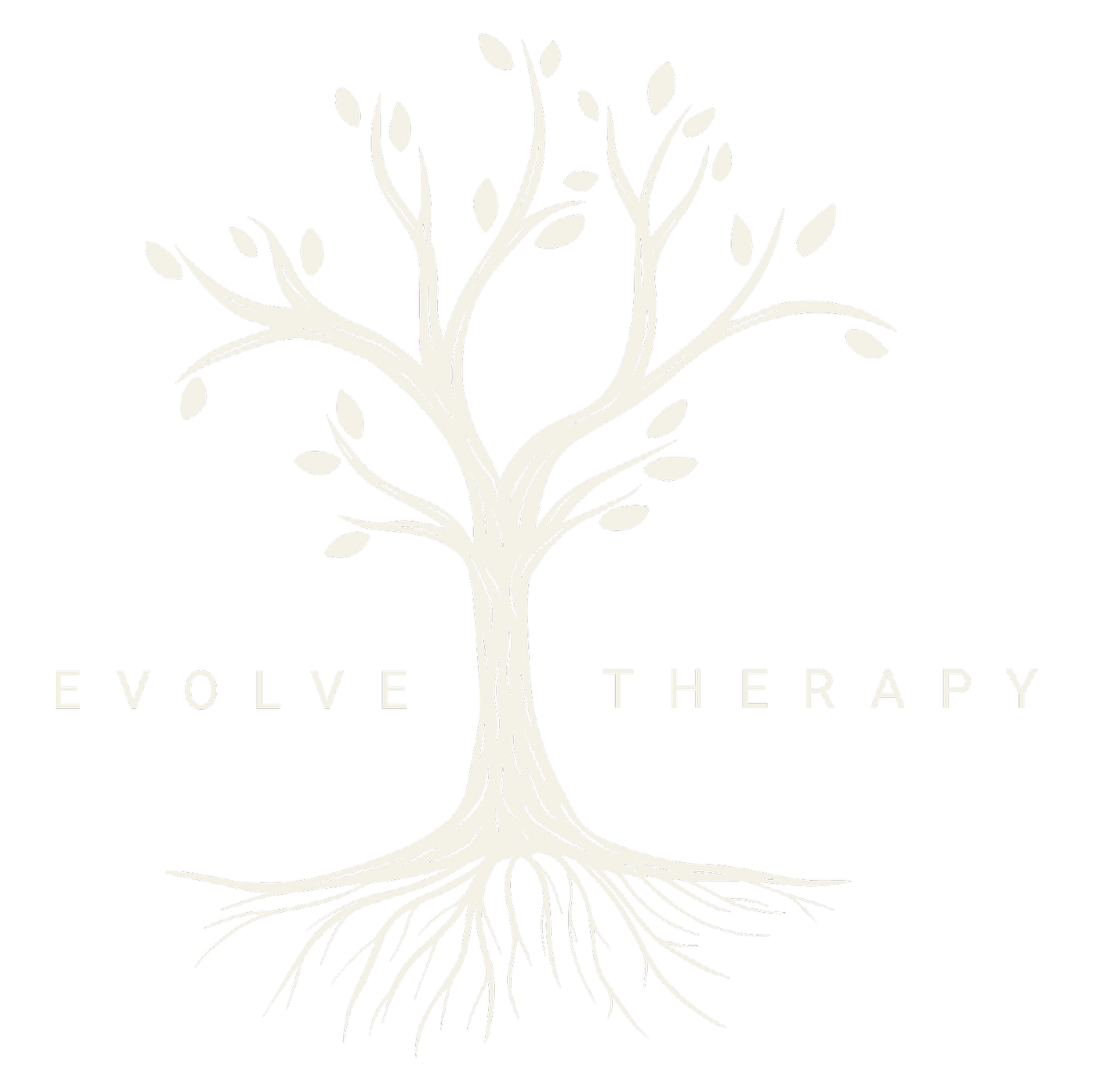Anxiety Therapy in Phoenix, Arizona
TL;DR
Feeling anxious, burned out, or overwhelmed?
Anxiety therapy can help calm your nervous system, heal the root, and stop the cycle of overthinking and stress.
Our approach goes beyond talk therapy—we utilize Deep Brain Reorienting (DBR), Cognitive Behavioral Therapy (CBT), somatic therapy, and brain-based, nervous system regulation tools to help you feel safe, connected, and fully yourself again.
Choose ongoing individual therapy or a focused therapy intensive for more in-depth, accelerated progress.
Sessions available in-person in Phoenix or virtually across Arizona and Connecticut.
Anxiety Therapy - Heal Beyond Coping Skills
Does This Sound Familiar?
You can’t stop overthinking—even when you know there’s nothing to worry about.
Your body feels stuck in stress mode—tight chest, shallow breathing, racing heart.
You’ve tried coping skills, but the anxiety always creeps back.
Even on “good days,” there’s a low-level hum of worry you can’t shake.
If you’re nodding along, you’re not alone. Anxiety affects millions of millennials in Phoenix, AZ, but the root cause often runs deeper than just “stress.”
Why Anxiety Feels Harder for Millennials
Millennials are known as the burnout generation—juggling careers, relationships, financial pressures, and often unprocessed childhood or relational trauma.
When your nervous system never feels truly safe, it can lead to:
High-functioning anxiety that’s hard to explain to others
Perfectionism, people-pleasing, and difficulty relaxing
Chronic physical symptoms like IBS, fatigue, or pain
Feeling “numb” or disconnected even in moments that should feel joyful
Anxiety isn’t just in your head—it’s in your nervous system.
How Our Anxiety Therapy Is Different
Most therapy focuses on managing anxiety with coping skills. We go deeper.
Our work addresses the root causes of anxiety—whether it’s unprocessed trauma, attachment wounds, or chronic nervous-system dysregulation.
What We Use in Anxiety Therapy:
Deep Brain Reorienting (DBR) → Clears trauma responses in the brainstem, where anxiety loops begin
Cognitive Behavioral Therapy (CBT) →Rewire brain pathways by challenging + changing thought patterns
Somatic Therapy → Helps calm the body’s stress response and create safety
Parts Work & Attachment Repair → Heals inner conflicts that fuel anxiety
Nervous System Regulation Tools → Gives you lasting, body-based skills for resilience
This isn’t just “talking about your anxiety.” It’s about changing how your body and mind hold stress.
What Anxiety Therapy Can Help With
Our approach is effective for:
Generalized anxiety & panic attacks
Social anxiety & performance anxiety
Burnout & chronic stress
Health anxiety or trauma from medical events
Anxiety tied to chronic pain or illness
Relationship anxiety & attachment wounds
Is Individual Therapy or Intensive Therapy Better for Me?
Individual Therapy vs. Therapy Intensives for Anxiety
Many clients see progress through weekly individual sessions, but if you’ve been struggling with anxiety for years—or if you want deeper, faster results—therapy intensives may be the best fit.
How They’re Different:
Individual Therapy
Pace: Gradual, session by session
Time: 50 minutes weekly
Best for: Ongoing support
Results: Steady progress
Intensive Therapy
Pace: Focused deep-dive in a single day or multi-day
Time: 3–6 hours in one day (or multi day)
Best for: Breaking through stuck anxiety patterns quickly
Results: Deep, accelerated shifts
Intensives are ideal for anxiety linked to longstanding trauma, attachment wounds, or chronic pain.
Many clients describe an intensive as “months of therapy in a single day.”
What to Expect in Anxiety Therapy
Book Your Consultation
A 15-minute call to talk about what you’re experiencing & how we can help.Begin with a 75-Minute Intake Session
We’ll explore your history, triggers, and what your anxiety looks like in your mind & body.Personalized Treatment Plan
Sessions focus on DBR, CBT, somatic therapy, and nervous system healing—not just surface-level coping.See Real Change
Most clients feel more regulated and hopeful within just a few sessions.
Online Anxiety Therapy in Arizona
Can’t make it to our Phoenix office? We also offer virtual anxiety therapy to clients throughout Arizona.
Ready to Finally Feel Calm?
You don’t have to keep living in survival mode. Anxiety doesn’t have to run your life.
FAQs About Anxiety Therapy
-
Anxiety can look different for everyone. Some people describe it as a constant hum of worry, while others experience sudden panic that feels overwhelming.
Here are some symptoms that may sound familiar:
Racing thoughts or trouble focusing
Difficulty relaxing or “turning your brain off”
Physical symptoms like tightness in the chest, upset stomach, headaches, or fatigue
Trouble sleeping, either falling asleep or staying asleep
Feeling on edge or easily overwhelmed by everyday stress
Overthinking conversations or interactions long after they happen
Avoiding situations that trigger worry or fear
Social anxiety or fear of being judged
Feeling like you have to keep “performing” for others while secretly struggling inside
If these sound familiar, you’re not alone—and anxiety therapy can help you find relief.
-
Therapy for anxiety is not one-size-fits-all. We’ll work together to understand what’s driving your anxiety and use approaches that address both the mind and body.
I’ve been trained in multiple trauma-informed and anxiety-focused modalities, and I’ll tailor them to your specific needs.
For example, we may use:
Deep Brain Reorienting (DBR) to gently shift the deep nervous system responses that keep anxiety looping
Cognitive Behavioral Therapy (CBT) to rewire brain pathways and change the way you think + feel, which leads to behavioral changes.
Somatic therapy to help your body feel safer and more grounded
Parts work & attachment repair to heal the inner critic and self-doubt that fuel anxiety
Mindfulness & nervous system regulation to build skills that bring calm in the moment
Our first goal will always be to create a safe, supportive therapeutic relationship so you feel comfortable exploring your anxiety without judgment.
-
Both weekly sessions and intensives can be beneficial, but they’re designed differently.
Individual sessions are 50 minutes long and help you build insight and regulation over time.
Therapy intensives are 3–6 hour sessions that allow us to go deeper and make more progress in a single day—clients often say it feels like months of therapy condensed into one experience.
Intensives are ideal if you’ve been living with anxiety for a long time or feel stuck in patterns that just won’t shift.
-
Many clients come to me after feeling like past therapy only scratched the surface. That’s because traditional talk therapy doesn’t always reach the nervous system, where anxiety really lives.
With DBR and somatic approaches, we work on the deeper brain and body responses that fuel anxiety—so you can experience real relief, not just temporary coping.
-
We’ll begin with a 15-minute consultation where we’ll talk about what you’re experiencing and whether individual therapy or an intensive might be the best fit.
-
It depends on your goals. Some clients come in for a short-term focus on specific triggers (8–10 sessions), while others choose to work longer (20+ sessions) for deeper trauma-related anxiety or ongoing support.
Therapy intensives can also accelerate your progress, helping you process months of anxiety patterns in just 1–2 focused sessions.




